1. Big Pharma
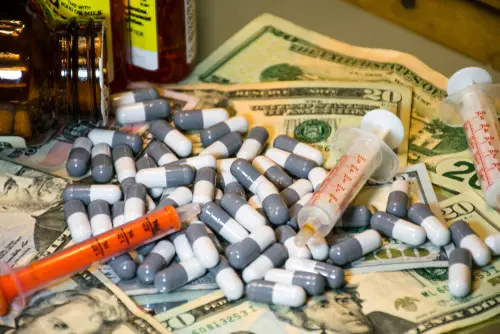
Most Americans know prescription drug prices in the U.S. are wildly inflated, yet the industry keeps raking in profits. Many life-saving medications cost a fraction of the price in other countries, but Americans have little choice but to pay. High-profile lawsuits around opioids exposed how some companies pushed addictive drugs while downplaying risks. Despite outrage, people still rely on these companies for everyday medicine.
What keeps the industry propped up is the fact that people simply can’t opt out of healthcare. Even critics of Big Pharma still fill prescriptions for everything from antibiotics to insulin. Insurance companies, doctors, and pharmacies are deeply tied to this system, leaving little room for alternatives. So people continue to complain about it, while funding it with every trip to the pharmacy.
2. Fast Food Chains
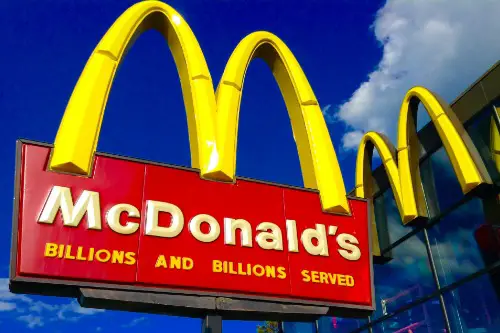
Americans know fast food isn’t healthy and that many chains exploit low-wage workers. Stories of underpaid employees, unsafe conditions, and food that barely resembles its advertised form circulate constantly. Obesity rates and chronic illnesses tied to fast food consumption are widely discussed. Still, the drive-thru lines stay full morning to night.
Convenience and affordability are what keep fast food alive despite its reputation. Families on tight budgets can’t beat the price of a dollar menu, and workers with long shifts rely on the speed of a burger combo. Clever marketing and nostalgia also make people overlook the downsides. Even if they complain about quality or ethics, the craving usually wins out.
3. Cable Companies
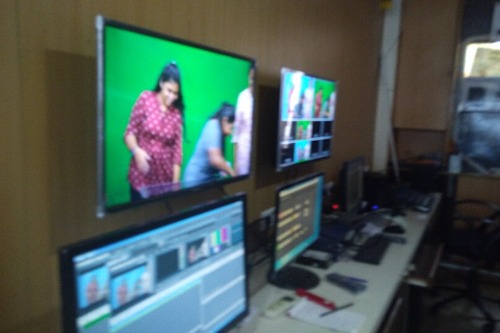
It’s no secret that Americans despise their cable and internet providers. Year after year, these companies rank among the lowest in customer satisfaction surveys. Complaints include hidden fees, monopolistic practices, and notoriously bad customer service. Yet millions still pay hefty bills every month.
The problem is that many areas have little to no competition, so consumers don’t have alternatives. Streaming hasn’t completely replaced live sports or local channels, so people stay locked in. Even cord-cutters often end up buying internet from the same hated providers. As frustrating as it is, people keep writing the checks.
4. Big Oil and Gas
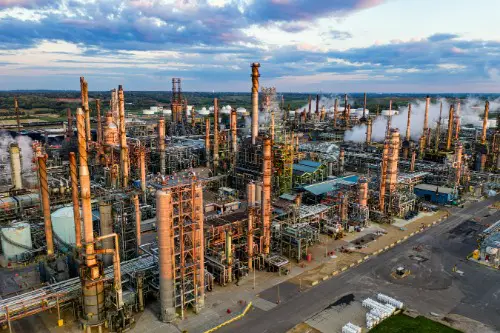
Everyone knows fossil fuel companies have contributed massively to climate change. Investigations have shown that some companies downplayed their knowledge of environmental damage for decades. Despite protests and pushes for renewables, gas stations stay crowded every day. People grumble about prices but still swipe their cards.
That’s because most Americans don’t have realistic alternatives to gas-powered cars. Public transportation is limited in many parts of the country, and electric vehicles remain too expensive for many households. Heating homes with oil and gas is also deeply entrenched. Until infrastructure changes, people support the industry even as they curse it.
5. Meat and Dairy Industry

Americans are increasingly aware of the environmental and ethical issues tied to large-scale animal agriculture. Factory farming conditions and the industry’s lobbying power have been exposed repeatedly. Health experts also warn against overconsumption of processed meats and dairy. Still, burgers, pizza, and steak remain staples.
The truth is, cultural traditions and convenience keep people loyal to meat and dairy. Plant-based alternatives have gained ground, but they’re often pricier and not always accessible. For many, the taste of familiar meals outweighs concerns about sustainability. So people complain about factory farms even while they shop for barbecue.
6. Banking and Credit Cards

Big banks were at the center of the 2008 financial crisis, and trust in them has never fully recovered. Stories of predatory lending, overdraft fees, and hidden charges remain common. Yet most Americans still deposit paychecks into the very institutions they distrust. Credit card companies, notorious for high interest rates, also keep thriving.
The convenience and necessity of banking make it hard to avoid. Direct deposits, mortgages, and everyday purchases tie people to these systems. Even when alternatives like credit unions or fintech apps exist, they don’t always offer the same reach or reliability. People grumble about fees but still swipe and tap daily.
7. Big Tech
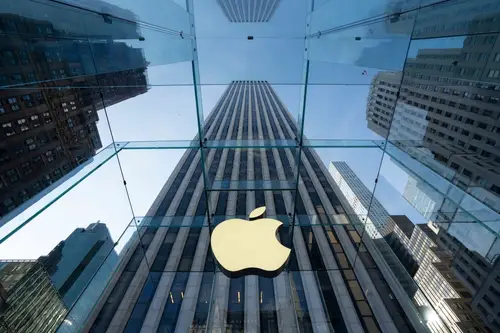
Privacy scandals, monopolistic behavior, and questionable labor practices have made Big Tech a frequent target of criticism. Americans know that companies like Facebook, Google, and Amazon collect data and wield massive influence. Yet nearly everyone uses their platforms every single day. Complaints are constant, but usage doesn’t drop.
The reality is these services are deeply woven into modern life. From staying in touch with family to shopping for essentials, Big Tech dominates daily routines. Even people who delete one app often end up on another from the same company. Dependency outweighs distrust, keeping the system alive.
8. Insurance Companies

Health, auto, and home insurance are among the most universally resented industries. Americans know policies are full of loopholes, exclusions, and rising premiums. Denials of coverage and endless paperwork are common horror stories. Yet most people keep paying, often because the law requires it.
Insurance sells peace of mind, and for many, the risk of going without is too high. Health costs alone could bankrupt a family without coverage. Drivers can’t legally skip auto insurance, and homeowners often need it for mortgages. So while people distrust the companies, they still sign up year after year.
9. Higher Education

The student loan crisis has been front-page news for years. Americans know tuition prices have skyrocketed and that debt can haunt graduates for decades. For-profit universities and predatory lenders have been exposed in scandals. Yet people still line up to enroll every semester.
That’s because higher education is seen as the ticket to better jobs and upward mobility. Parents push kids toward college, even if the return on investment is questionable. Employers still demand degrees for many roles. Despite knowing the flaws, families buy into the system anyway.
10. The Lottery
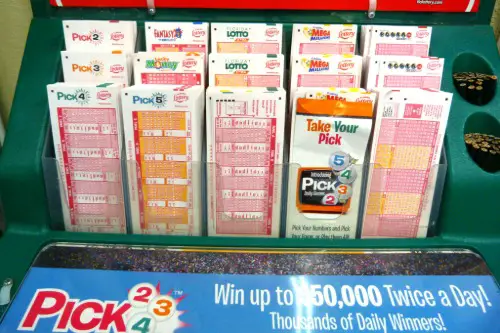
Most people admit the odds of winning the lottery are slim to none. Critics point out that state lotteries often target lower-income communities. The money raised rarely matches the promises made about funding schools or social programs. Still, gas stations sell millions of tickets daily.
The hope of instant wealth is just too tempting. For a few dollars, people can imagine escaping their financial struggles. Even those who know it’s “a tax on the poor” often justify it as harmless fun. The system thrives on optimism, even when logic says otherwise.
11. Fashion Industry
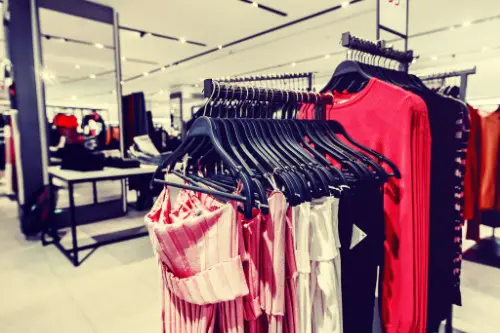
Fast fashion brands have been called out for exploiting cheap labor overseas. Environmental concerns about textile waste and pollution are also well-documented. Yet stores and websites selling $10 shirts and trendy jeans remain wildly popular. Consumers acknowledge the problems but keep filling carts.
The reason is simple: affordability and access. Many people can’t justify spending triple the price on sustainable fashion, even if they care about ethics. Trends move quickly, and fast fashion keeps up in ways sustainable brands can’t. So the cycle of criticism and consumption continues.
12. Pharmaceuticals in Animal Agriculture

Most Americans don’t think twice about antibiotics in their meat supply, but many know it’s a problem. The industry’s overuse of antibiotics in livestock has been tied to antibiotic-resistant bacteria. Public health officials warn this could make treating infections harder in the future. Still, people keep buying cheap meat raised this way.
The draw is affordability and availability. Meat raised without antibiotics is often more expensive and harder to find. Consumers may shake their heads at the practice, but dinner plates still feature chicken and beef from large-scale farms. The system keeps going because demand never slows.
This post 12 Industries Americans Know Are Corrupt But Still Support Every Day was first published on American Charm.


